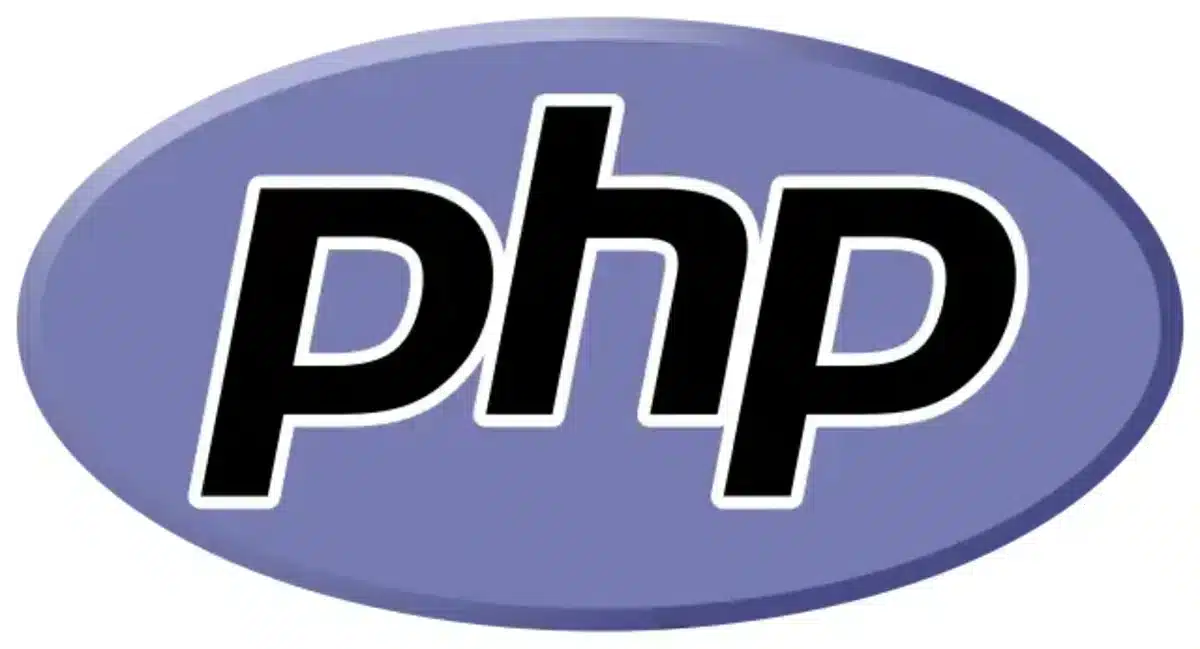Is PHP Still Relevant? Myths Exposed

In the ever-evolving web development landscape, one question that often arises is, “Is PHP still relevant?”
As technology advances and new programming languages and frameworks appear, it’s natural to doubt the future sustainability of existing technologies.
Once the backbone of dynamic web development, PHP has stood the test of time despite facing competition from newer alternatives.
This blog’ll examine PHP’s current state and its continued relevance in the modern web development ecosystem.
Whether you’re a seasoned PHP developer or someone considering the language for your next project.
Table of Contents
What is PHP?

“Is PHP still relevant?” This question often resonates in the ever-evolving realm of web development.
Initially crafted by Rasmus Lerdorf in 1994, PHP has become a cornerstone of dynamic website creation and application development.
Despite the emergence of newer languages and frameworks, PHP stands tall.
With its latest version, PHP 8.3, the language evolves further, incorporating new features, optimizations, and enhancements.
Embedded within HTML, PHP executes server-side, facilitating dynamic content generation for web browsers.
Renowned for its simplicity, adaptability, and seamless integration with diverse databases and servers, PHP remains a top choice for crafting interactive websites, online stores, and content management systems.
Its open-source nature builds a vibrant community of developers, ensuring its ongoing relevance and widespread adoption in the digital landscape.
Is PHP Still Relevant?
The answer to the standard query “Is PHP still relevant?” is straightforward: Yes, PHP is still relevant in web development.
Despite the emergence of newer programming languages and frameworks, PHP continues to be widely used for building dynamic websites and web applications.
Many popular content management systems (CMS) like WordPress, Drupal, and Joomla are built using PHP, ensuring its continued relevance in powering a significant portion of the web.
Additionally, PHP offers simplicity, flexibility, and a vast community of developers, making it a viable choice for various projects.
However, developers should consider project requirements, scalability, and security factors when deciding whether to use PHP or explore alternative technologies.
Advantages of Using PHP
The question “Is PHP still relevant?” Remain throughout the field of online development, demanding a closer look at the benefits of utilizing this adaptable programming language:
- Accessibility and Simplicity: PHP’s user-friendly syntax and abundant resources make it an ideal choice for developers of all skill levels. Like C and Java, its familiarity ensures a smooth learning curve and efficient development process.
- Open-Source Nature: PHP’s open-source status fosters a vibrant community and allows constant improvement and innovation. Developers worldwide collaborate, sharing insights and contributing to the language’s evolution.
- Flexibility and Compatibility: PHP’s versatility extends to its compatibility with various operating systems and web servers, allowing developers to deploy applications across diverse environments.
- Seamless Integration: PHP seamlessly integrates with numerous databases and protocols, empowering developers to interact with data and communicate effectively across different platforms.
- Continuous Improvement: PHP’s evolution is marked by ongoing enhancements and optimizations, ensuring improved performance and efficiency with each new version. Innovations like JIT compilation in PHP 8 underscore its commitment to staying at the forefront of web development.
- Robust Community Support: The expansive PHP community provides many resources, including libraries, frameworks, and tools, to simplify development and address challenges effectively.
- Scalability and Adaptability: PHP empowers developers to build applications that scale seamlessly to meet evolving demands, whether a personal blog or a complex enterprise solution.
- Emphasis on Security: While security is essential in any programming language, PHP’s community actively addresses vulnerabilities and releases updates to fortify its defences, ensuring the integrity and safety of web applications.
In conclusion, PHP’s enduring relevance in web development is evident in its many advantages. From its accessibility and flexibility to its strong community support and commitment to innovation
Common Misconceptions About PHP
Let’s understand some of the most common misconceptions about PHP while addressing the question, “Is PHP still relevant?”
- Outdated and Obsolete Perception: Despite rumours of outdated PHP, it remains a cornerstone of web development, continuously evolving to meet modern demands. The misconception that PHP is outdated overlooks its ongoing development and adaptation to industry trends.
- Security Concerns: While security vulnerabilities have been identified in PHP, the misconception that it’s inherently insecure fails to acknowledge the proactive measures taken to enhance PHP’s security. With thorough coding practices and regular updates, PHP can be utilized securely in various applications.
- Performance Doubts: There’s a misconception that PHP is slow and inefficient, especially compared to newer programming languages. However, recent advancements, such as JIT compilation in PHP 8, have significantly improved its performance, challenging the notion of PHP’s sluggishness.
- Limited Scalability Assumption: Some believe PHP is unsuitable for large-scale projects due to perceived scalability limitations. This misconception disregards the scalability demonstrated by high-traffic websites like Facebook, WordPress, and Wikipedia, all built on PHP foundations.
- Perceived Lack of Modern Features: Contrary to popular belief, PHP offers many modern features and tools for web development. Frameworks like Laravel and Symfony support contemporary practices such as RESTful APIs and microservices, challenging the notion of PHP’s antiquity.
- Difficulty in Learning: While learning any programming language requires effort, the misconception that PHP is overly complex fails to recognize its simplicity and accessibility. With a syntax similar to C and Java, PHP is approachable for developers of varying skill levels.
- Narrow Application Scope: While PHP is commonly associated with server-side scripting, the misconception that it’s limited to this role overlooks its versatility. PHP demonstrates adaptability across diverse domains, from command-line scripting to desktop application development.
- Questioning Maintenance and Support: Lastly, the misconception that PHP is no longer actively maintained neglects the dedicated efforts of its development team. Regular updates, patches, and new versions underscore PHP’s ongoing commitment to improvement and relevance.
While PHP may face misconceptions, its relevance in modern web development remains undeniable.
Future Prospects of PHP

When contemplating the prospects of PHP, the question of “Is PHP still relevant?” naturally arises. Let’s dig into several key factors that affirm PHP’s continued relevance and evolution in the realm of web development:
- Continual Development and Innovation: PHP undergoes constant development, with each new version introducing features, optimizations, and enhancements to keep pace with evolving technologies. This ongoing commitment to improvement ensures that PHP remains a pertinent choice for web development projects.
- Embrace of Modern Practices: PHP frameworks like Laravel and Symfony embrace modern development practices, such as MVC architecture and RESTful APIs. By adopting these practices, PHP frameworks empower developers to build scalable and maintainable applications, reaffirming PHP’s relevance in contemporary development workflows.
- Diversification into New Domains: While traditionally associated with web development, PHP demonstrates versatility by expanding into new domains and use cases. As technologies like serverless computing and microservices gain prominence, PHP adapts to these paradigms, integrating seamlessly and remaining adaptable to emerging trends.
- Integration with Emerging Technologies: PHP’s compatibility with emerging technologies like artificial intelligence and machine learning ensures its continued relevance in an ever-evolving technological landscape. With libraries and APIs available, PHP developers can leverage these technologies to enhance the functionality and intelligence of their applications.
- Strong Support from Community: PHP benefits from a strong and supportive community of developers contributing to its ecosystem with libraries, frameworks, and tools. This vibrant community ensures that PHP remains well-supported and continuously improving and provides developers with the resources to tackle evolving challenges.
- Legacy Code Maintenance: Given the prevalence of existing web applications built on PHP, there is an ongoing demand for developers skilled in PHP to maintain and update legacy codebases. This presents opportunities for PHP developers to apply their expertise, contributing to the maintenance and modernization of existing applications.
In conclusion, while disclosing the doubt on “Is PHP still relevant?” the future of PHP appears bright with its continual development, the embrace of modern practices, diversification into new domains, integration with emerging technologies, and strong community support, all affirming its ongoing relevance and evolution.
Conclusion
In summary, the inquiry “Is PHP still relevant?” has been thoroughly explored, affirming PHP’s enduring significance in web development.
Despite the rise of new languages and frameworks, PHP’s ongoing evolution, versatility, and strong community backing solidify its relevance.
With its simplicity, extensive ecosystem, and adaptability to emerging technologies, PHP remains a top choice for developers worldwide.
As the digital landscape evolves, PHP stands poised to meet the demands of modern web development, making it an indispensable tool for creating dynamic and scalable web applications.
FAQs
Can PHP be used to build modern web applications?
Absolutely! PHP has evolved over the years and adapted to the changing landscape of web development. With the introduction of modern frameworks like Laravel, Symfony, and CodeIgniter, PHP can be used to build highly scalable, secure, and feature-rich web applications.
Is PHP secure?
Security is a top priority in web development, and PHP takes it seriously. While PHP itself is secure, the security of a PHP application depends on how it’s written and configured.
Can PHP be used to build eCommerce websites?
Yes, PHP is well-suited for building eCommerce websites. Developers can create powerful and customizable online stores with frameworks like Magento, WooCommerce, and OpenCart. These frameworks provide features such as product management, payment processing, order tracking, and inventory management.
Is PHP used for mobile app development?
While PHP is primarily used for web development, it can indirectly contribute to mobile app development through APIs (Application Programming Interfaces). Developers can use PHP to build the backend infrastructure and services that power mobile applications.
How can I get started with PHP?
Getting started with PHP is easy! Plenty of online resources, tutorials, and documentation are available for beginners. You can start by learning the basics of PHP syntax, variables, control structures, and functions. To strengthen your knowledge, practice coding regularly while developing projects.
Where can I find PHP developers for hire?
Given the popularity of PHP, finding skilled PHP developers is relatively easy. You can explore freelancing platforms like Upwork, Freelancer, and Toptal to hire experienced PHP developers for your projects.
